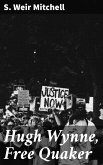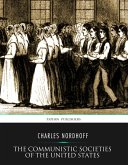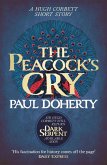S. Weir Mitchell's "Hugh Wynne, Free Quaker" is a historical novel set against the backdrop of the American Revolution, blending fiction with vivid historical details to create an immersive narrative. Through the lens of its protagonist, Hugh Wynne, the novel explores themes of loyalty, identity, and the quest for freedom, rendered with a rich, descriptive style that captures the emotional and physical landscapes of 18th century America. Mitchell skillfully intertwines dialogue and period-specific settings, creating an authentic ambiance that invites readers into the tumultuous world of early American society and the consequences of war on individuals and families. Born in 1829 in Philadelphia, S. Weir Mitchell was a physician and novelist whose personal and professional experiences influenced his literary works. Mitchell's background in medicine provided him with unique insights into human nature and suffering, themes that resonate throughout this narrative. His own Free Quaker roots and experiences during the Civil War informed his understanding of conflict and moral complexity, giving depth to Wynne's choices and challenges as he navigates political turmoil and personal development. Readers seeking a rich, historical exploration of the American Revolution and its impact on personal identity will find "Hugh Wynne, Free Quaker" an engaging and enlightening read. Mitchell's ability to evoke a sense of place and time will appeal not only to history enthusiasts but also to those interested in the intricacies of human character under duress.
Dieser Download kann aus rechtlichen Gründen nur mit Rechnungsadresse in A, B, BG, CY, CZ, D, DK, EW, E, FIN, F, GR, H, IRL, I, LT, L, LR, M, NL, PL, P, R, S, SLO, SK ausgeliefert werden.









